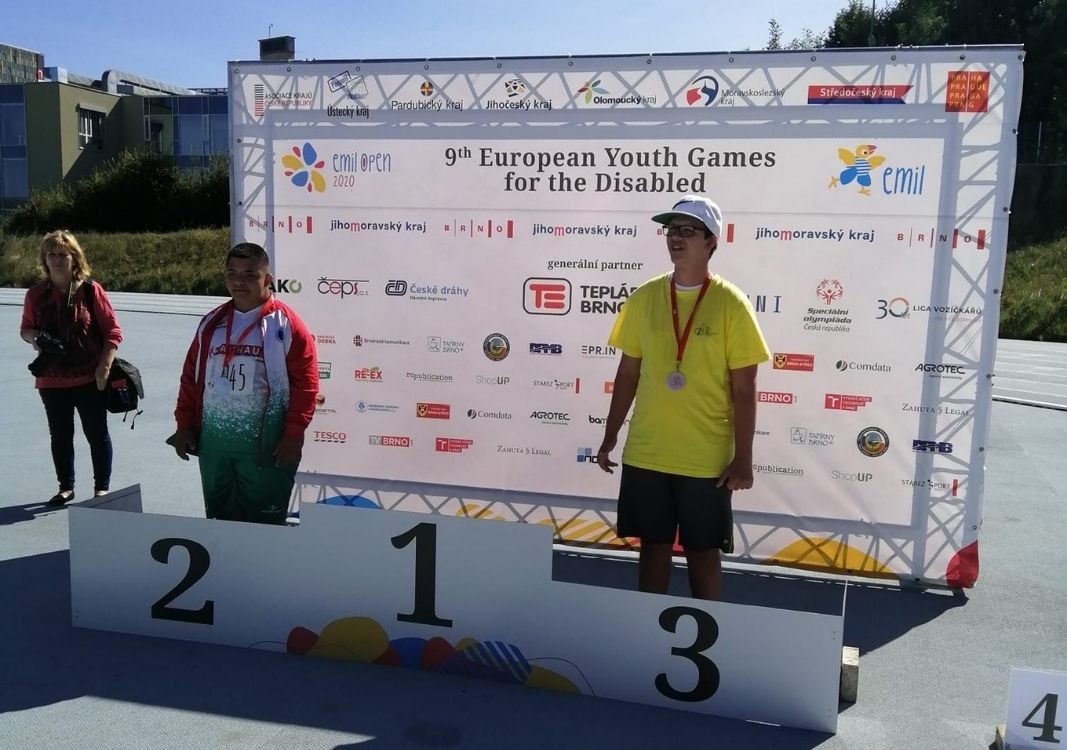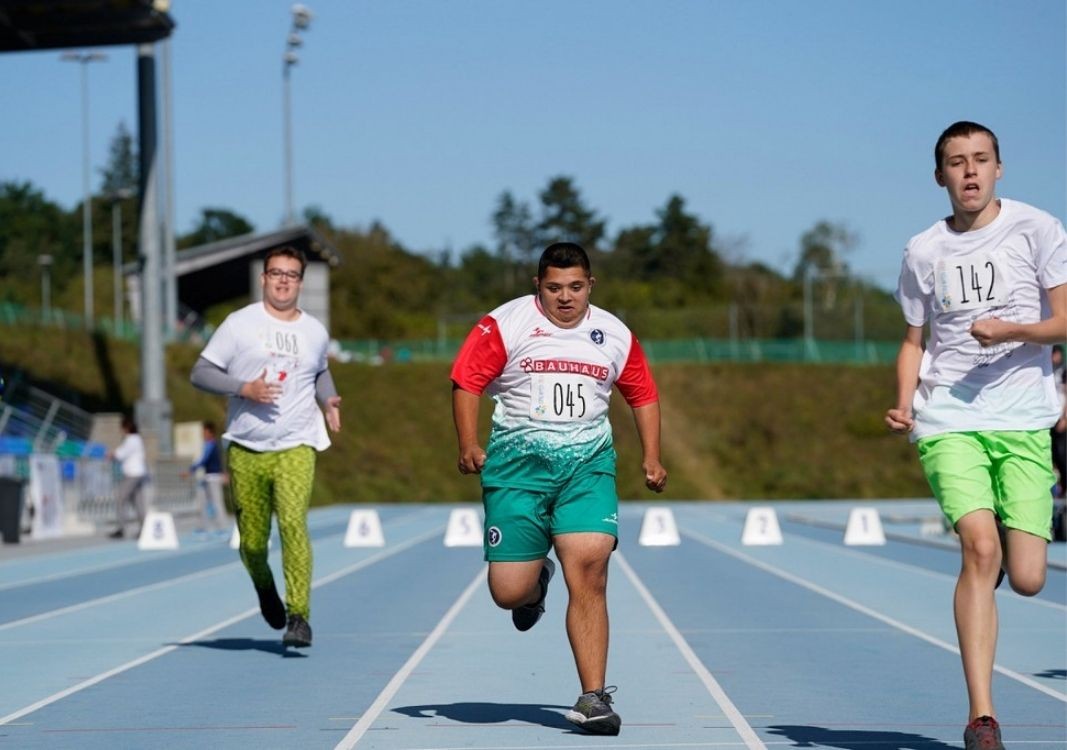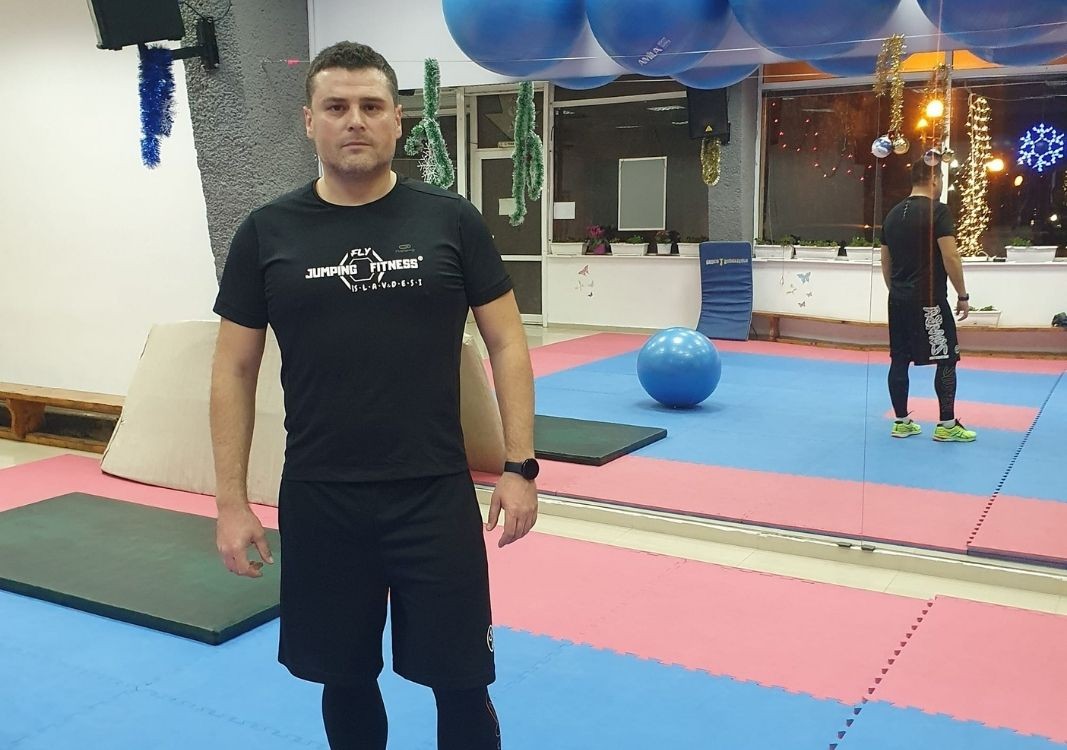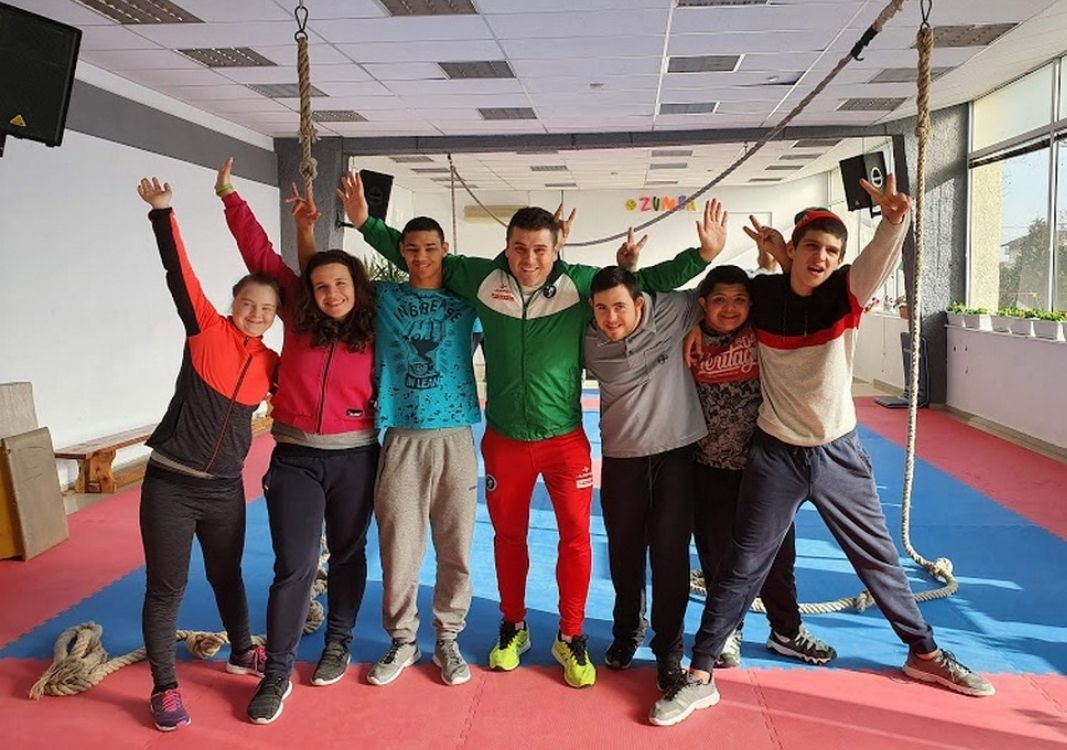Boyan is a 15-year-old adolescent from Sofia, one of those who grow up and manage to cope in life despite having the Down syndrome. He has surpassed most of his peers in physical abilities and is a multiple medalist at the European Games for young people with disabilities – Emil Open. In September last year the boy returned from the European Games for Youth with Motor and Mental Disabilities, held for the 9th time in Brno, Czech Republic. The Bulgarian youngsters won 6 gold, 5 silver and 3 bronze medals there, amid great competition from 12 participating countries.
"This is achieved with a lot of work and perseverance, and with many coaches who work in this field. But unfortunately, in Bulgaria sport remains in the background, and no one believes that it even exists for these children," says in an interview with BNR Boyan's mother – Borislava Vandova.

"We go abroad, but there are no such competitions in Bulgaria," she says. “Sport helps children to develop. There must be more specialists paid by the state, not to rely only on volunteers. The trainings are at least three hours a day, they are after the end of the school classes. The trainings continue at home and with perseverance the results are coming. So from a child with a mental problem who was absolutely dependent on someone else's help, I now have a completely independent child who can cope with the problems in life on his own. It is very difficult to work with our children – we, their parents, are aware of that. We cannot be therapists, physiotherapists, psychologists at the same time. As a parent, I would like to pursue my profession and thus be a full-fledged citizen of this society, and not be constantly at home to look after my child”.

In the school where Boyan trains, all young people are elite athletes and are preparing for high sports achievements. Upon their first steps there, though, they are completely unprepared, even without any communication skills, and some can even show aggression. After the meetings and the work with the coaches, there is no memory left of these conditions.
"These children have become great athletes who put a lot of effort into being real athletes and a full part of our society. They even have contact with athletes from other countries, have high goals, pursue them and know that they have something to be proud of," says in an interview for the BNR Slav Petkov, President of the Federation of Adapted Physical Ability for the Balkans and Black Sea Area (FAPA)/ The federation is focused on developing sports for people with special educational needs.

"The process for these athletes is difficult, it requires a lot of patience and strong nerves, and people who deal with children with disabilities are literally counted on the fingers of one’s hand. The problem is the lack of awareness that work is not so unattractive and it also requires more patience when it comes to children with mental health problems. Sport is one of the best ways for the social integration of these children and Boyan is the first with whom the federation works. Policies in this area are ineffective because they are not popular enough. Not only sports, all social services offered to people with special needs must be advertised”.

In addition to sports, the Adapted Physical Activity Federation is engaged in many other activities through which it teaches children to work. Since 2019 he has been working on a European project for children and youth with special needs. They built the first social confectionery in Sofia, called the "Little House", where young people learn to contribute to society. For them, social contacts are of great importance, so this pastry shop is a chance that not everyone in the country has.
Compiled by Gergana Mancheva (based on interviews of Tanya Lyubenova from BNR’s Hristo Botev channel)
English version Rositsa Petkova
Photos: fapabbs.eu, Fаcebook/ Slav Petkov, Borislava VandovaThe Association of Olympic Teams in Natural Sciences announced on Wednesday that Bulgarian high school students had won a gold, a silver and two bronze medals at the 32nd Balkan Olympiad in Informatics , which was held in Udine, Italy. The Bulgarian..
Applications can be submitted to the Bulgarian Cultural and Educational Centre in Scotland, First Bulgarian School "Nadejda Stancioff - Lady Muir” in Edinburgh for a new course for adults - Bulgarian for beginners. Classes start at 6-7 PM on..
Before leaving this world, Pope Francis chose "Migrants, missionaries of hope" to be the theme of this year's World Day of Migrants and Refugees, which the Catholic Church marks on 4-5 October 2025 . "With these words,..
"Folklore is a need for humans and this need will not disappear just like that, " says Assoc. Prof. Dr. Natalia Rashkova -..
October 17, 2025 will go down in history as the date on which the Minister of Culture of Hungary presented the document with which the..
The center of Bulgaria's town of Asenovgrad is today turning into a colorful scene of flavors, aromas and traditions, in which the spirit of the Red Wall..

+359 2 9336 661
